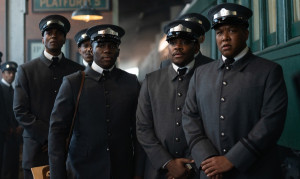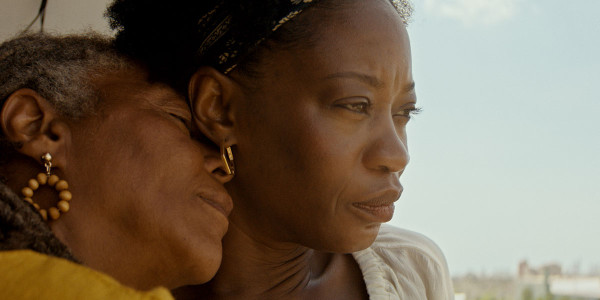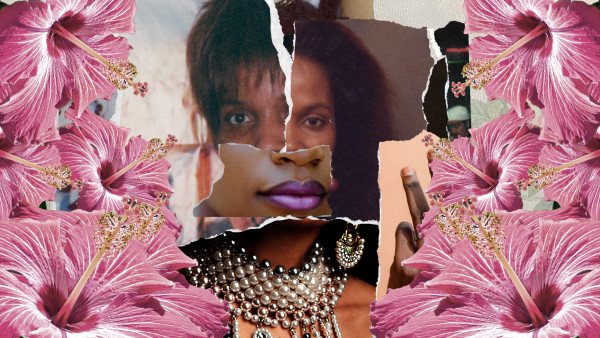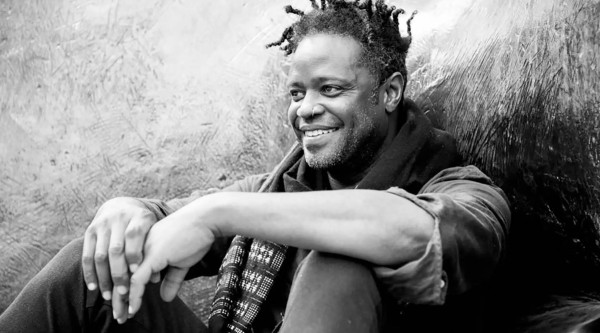“I never had a front yard or backyard or basement. I had stairways, hallways, parks and benches. A living room for us. A little room for me. But who wants to stay home at fourteen.”
-Ian Kamau (Writer & Director We Went Out)
So begins the poignant and surprisingly powerful 12-minute short film We Went Out, written and directed by multi-hyphenate Toronto artist Ian Kamau. Initially commissioned for Toronto’s Luminato Festival and conceived as a treatise for live music venues threatened with permanent closure during COVID-19 lockdowns, Kamau instead flipped the concept on its head. As a member of the city’s hungry, pre-Drake, burgeoning Hip-Hop scene, the film highlights the lived experience of Black and racialized youth who weren’t always welcomed at many of the venues Luminato wanted Kamau to showcase.
“The venues my close friends and I spent the most time in were in-between and informal spaces: sidewalks, stairwells, benches. We had few formal places to be on our own. I made We Went Out, a short film featuring my close friends and members of the downtown hip-hop community in the 90s and ’00s, to pay homage to the people who became adults in those in-between spaces.”
-Ian Kamau (Artist Statement — We Went Out)
The elephant in the room is the bitter irony captured within the intensity of Kamau’s direction of We Went Out. The film shines a spotlight on music venues not necessarily valued in a society that devalues art in general. It also gives importance to the unknown spaces created by artists who were themselves devalued by the same music venues. The American poet E.E. Cummings speaks to this challenge in his treatise The Agony of The Artist…
“The Artist is no other than he who unlearns what he has learned, in order to know himself, and the agony of the Artist, far from being the result of the world's failure to discover and appreciate him, arises from his own personal struggle to discover, to appreciate and finally to express himself.”
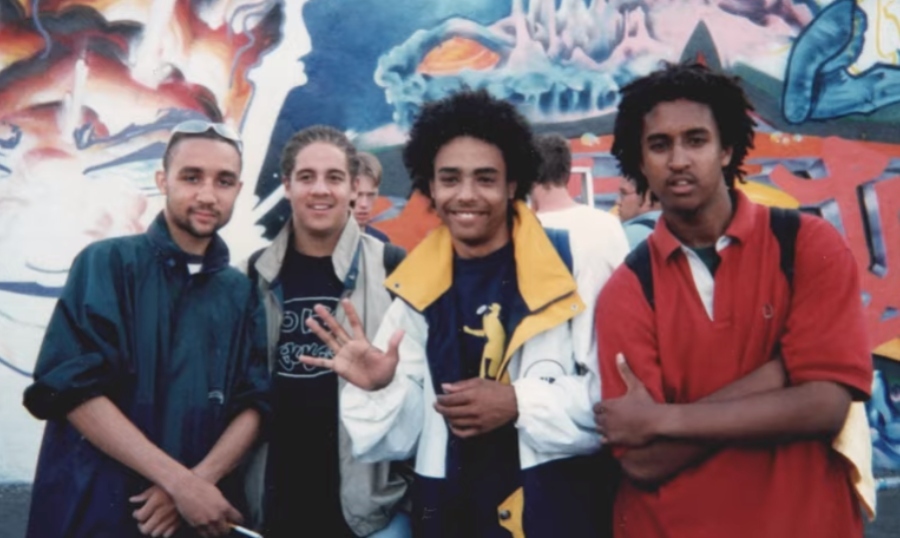
Screengrab: A blast from the past in the short film We Went Out (Rap Group 'Dynasty' L to R: Terrell " Natural" McLaughlin-Coward, Kenny "Bounce" Neal, Rainbow "Snidley" Sun-Francks, Paul "Change" Sackichand)
If We Went Out recognizes the unsung urban spaces given life by underappreciated artists, it’s also Kamau’s unlearning of the value society has placed on them. To appreciate and express himself and his community through this short film is how the director overcomes the exact artist’s agony expressed by Cummings — arising from his own personal struggle to discover, appreciate and finally express himself.
{https://youtu.be/sEsdPt7wpk0}
And so, Kamau has directed a film that is more than a scientific documentation of a city’s music subculture or underground scene. There is a beating heart underneath the project that combines archival and present-day footage to associations with people and places that are emotional touchstones for the director. How else to explain the tenderness with which he treats his subjects, friends whose lives and experiences intersect with his own and are allowed to take up space in a film about space once denied?
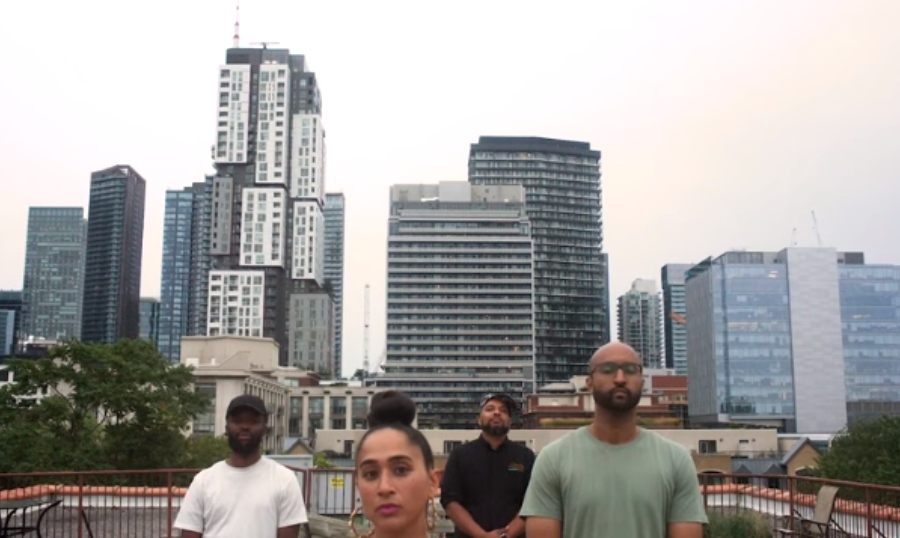
Screengrab: Past meets present in the short film We Went Out (L to R: Ian Kamau, Mia-Skye Sagara, Danilo McCallum, Paul Sackichand)
The moving images are presented like a visual love letter to the living and the dead while also paying homage to the makeshift venues that became incubators for Toronto’s art scene and community leaders. For proof, you need to look no further than the film's subjects. Danilo McCallum is an artist and designer whose Afrofuturist work was commissioned by the city in 2020 to create a sign for Toronto's City Hall. Paul Sackichand was a well-known local rap artist going by the name “Change.” Mia-Skye Sagara is an artist and community youth worker. Then, of course, there is Kamau himself. In the hands of a director outside of this circle, the film could have quickly become a voyeuristic exercise highlighting the negative aspects of the community that helped shape them. However, in the capable hands of Kamau, a director not only behind the lens, but one who is also present on camera as a narrator of the histories they all share, he is both subject and viewer.
That narration is itself a rich form of poetry that flows throughout the film, stitching together the past and present like a carefully crafted tapestry. The wind gently turns petals on a windmill. The serenity of sunlight reflects off lapping waves. Rooftops, stairways, streets, and buildings. People are loved, feared, respected, neglected, past, present, and “passed” in the present. It demonstrates the joys and traumas of racialized youth in urban environments worldwide but never becomes trauma porn. In 12-minutes, Kamau has captured that experience for a global audience who may also be of that time, who have similar memories of disenfranchisement, ingenuity, creativity, frustration, and familial, fraternal love.
We Went Out is a short film about the world racialized youth create for themselves when the world tells them there is limited space. Moreso, it appears to be about the lifelong relationships built out of need and love within self-formed communities that ultimately live as memories.
Memories that, like this film, hopefully inspire generations to come.
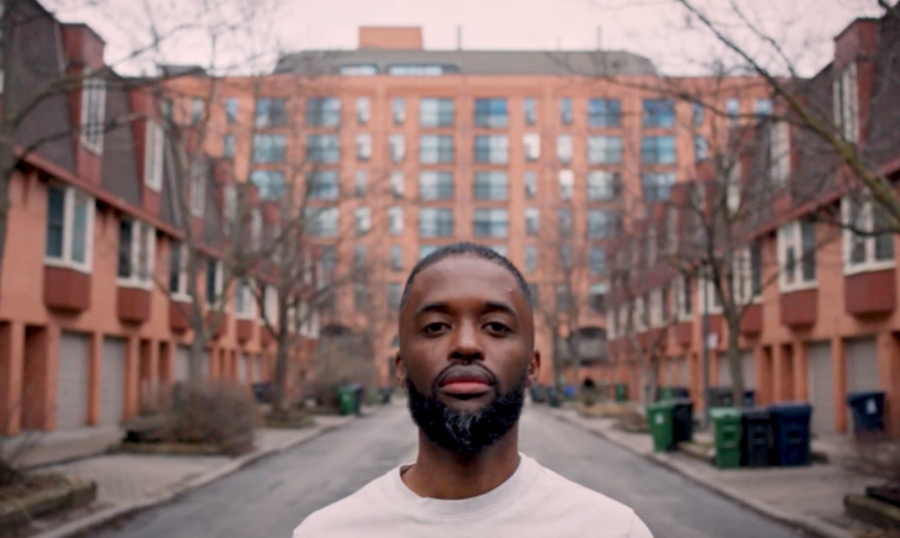
 By
By 

